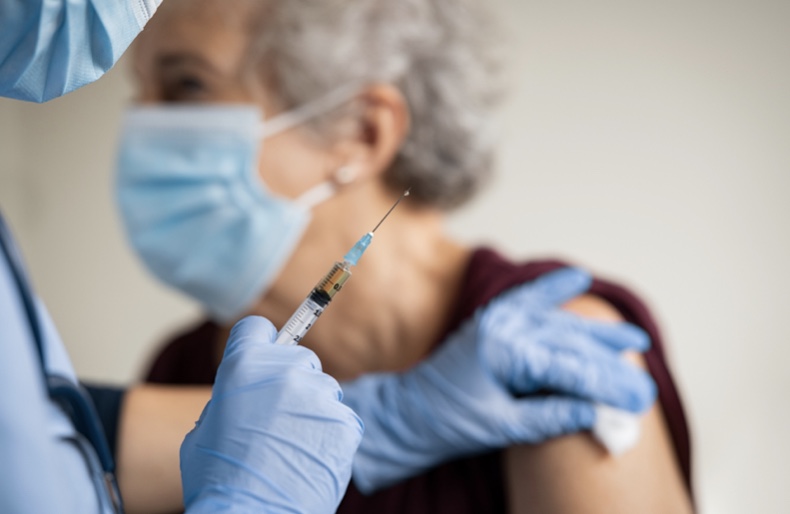When vaccines first became available to all Americans, it seemed like the COVID-19 pandemic would soon be in the rearview mirror. But now, between the delta variant, omicron variant and the end of lockdowns leading to more people — including the unvaccinated — gathering like they did before the pandemic began and thus spreading the coronavirus at rates not seen since early 2020, that rosy future seems more like a pipe dream.
With booster shots now rolling out for vulnerable populations who got their second doses at least six months ago, there’s once again light at the end of the COVID-19 tunnel. Yet even they cannot immediately end the pandemic, especially as hospitals are over capacity with ICU beds all being used to house those sick and dying of the coronavirus.
As healthcare professionals are once again inundated with the horror and misery of being on the frontlines of the COVID-19 pandemic, taking care of themselves has never been more important. Self-care isn’t just a luxury — it’s a necessity that allows healthcare professionals to show up as fully as possible for more patients than ever before. That’s why investing in yourself with products like a hydrating face cream and cuticle treatment are a great way to up your self-care quotient.
Make no mistake: these booster shots are an excellent tool in the public’s arsenal against the pandemic. Studies have shown that, like other vaccines that require boosters, the COVID-19 vaccines’ efficacy wanes over time. With concerns about the delta variant and the potential for other strains that may be resistant to the vaccines, this latest salvo in the fight against coronavirus is powerful — especially in light of how much we’ve already suffered.
To date, more than 700,000 Americans have died of COVID-19, with nearly 200,000 of those deaths occurring since vaccines by Pfizer, Moderna/BioNTech and Johnson & Johnson became widely available. With more than 74,000 people on average in the hospital with COVID per day, it’s no wonder that America’s ICU wards are in crisis.
This problem is concentrated the heaviest in states where vaccination rates remain low. One analysis, summarized by CNN, found that anyone in the states with the 10 lowest vaccination rates who contract OVID-19 is four times more likely to be hospitalized and five times more likely to die from the virus.

In states like North Carolina, which ranks 36th in the country from highest to lowest vaccination rates, the strain on hospitals is becoming even more complicated as healthcare systems begin requiring staff to be vaccinated — a savvy move that nevertheless has resulted in some hospitals facing staffing shortages as employees either quit or are fired in lieu of getting the jab. A late August study released by the North Carolina Nurses Association found that 77 percent of the nurses surveyed said their workplaces are either moderately or severely understaffed.
And even for those who are vaccinated, doing the work they love and helping the ill is harder than it ever was before. The NC Nurses Association study also found that burnout is worse than ever before, with concerns mounting that the ongoing pandemic will have even more severe consequences for healthcare professionals down the line.
It’s clear that nurses and other healthcare professionals must do everything they can to take care of themselves amid this terrifying pandemic and its sharp toll on the American hospital system. While there are obvious solutions such as getting vaccinated against COVID-19 and the flu, eating right and exercising when off the clock and spending downtime relaxing with loved ones, nurses deserve to pamper themselves just as much as anyone — if not more so.
Self-care isn’t just a buzzword — it’s a mental health strategy that doesn’t just benefit any one individual, but also the people they live and work with. This is critical for healthcare professionals, especially right now, as an overwhelming majority of people in the medical industry reported being anxious, frustrated, exhausted, burnt out and overwhelmed in a study by Mental Health America amid the COVID-19 pandemic.
Whether you’re taking time to simply relax with the family, getting out in nature, spending an evening laughing with old friends or taking in a concert or movie in a theater, looking out for yourself as a healthcare professional has never been more important than it is now.